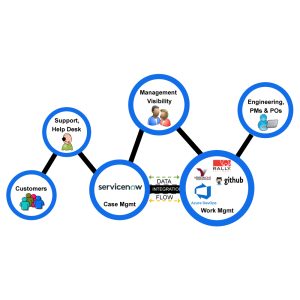Artificial intelligence (AI) has moved from being a futuristic experiment to a core driver of enterprise transformation. But as businesses quickly realize, AI is only as effective as the data and training that go into it. Generic AI models can interpret basic text or recognize simple patterns, but they often fail when applied to complex industries like healthcare, finance, insurance, or law where accuracy, compliance, and domain expertise are non-negotiable.
This is exactly where Watson Knowledge Studio (WKS) stands out. As part of the IBM Watson AI ecosystem, WKS enables organizations to build, annotate, and train natural language processing (NLP) models with industry-specific knowledge. Instead of trying to retrofit generic models, businesses can infuse their AI systems with their own terminology, compliance rules, and workflows.
A frequent question from enterprises is: What is the purpose of Watson Knowledge Studio? The answer is simple: it helps organizations transform raw data into contextualized knowledge, teaching AI to understand the language of their business.
When integrated with IBM Watson Studio, these models don’t just stay theoretical they are deployed at scale, combined with machine learning and automation to deliver actionable insights. This blog will explore how Watson Knowledge Studio works, its real-world use cases, the business value it delivers, and why enterprises are turning to partners like Nexright to accelerate adoption.
What is Watson Knowledge Studio?
At its core, Watson Knowledge Studio is a collaborative environment for creating, annotating, and training custom AI models. Unlike pre-trained NLP models that provide general insights, WKS allows businesses to embed domain-specific expertise into AI systems.
One of the most common enterprise queries is: How to access IBM Watson? With WKS, access is provided through the IBM Cloud Pak for Data or directly via IBM Watson services. Users upload domain-specific documents, annotate them, and then export trained models to Watson Discovery, Watson Assistant, or Watson Studio pipelines.
Key Features of Watson Knowledge Studio
- Custom Annotation – Domain experts tag documents with industry-specific terms so AI models can interpret context and meaning.
- Entity and Relationship Extraction – The model learns to identify people, places, products, organizations, or even sector-specific entities such as medical codes or financial instruments.
- Collaborative Training – Multiple teams data scientists, SMEs, and developers can annotate and train models together for accuracy.
- Integration with IBM Watson AI – Models trained in WKS can be seamlessly deployed into Watson Discovery, Watson Assistant, or used in Watson Studio.
- Continuous Learning – Models improve over time as new annotations are added, making AI systems adaptive to changing business environments.
So, what are the key features of IBM Watson? Beyond WKS itself, the broader ecosystem provides machine learning, automation, analytics, and conversational AI all designed to work together to solve enterprise challenges.
Why Do Businesses Need Domain-Specific AI Models?
Businesses often ask, Who uses IBM Watson? The answer spans industries: healthcare providers, financial institutions, insurers, government agencies, and law firms. But why do they need domain-specific models instead of generic ones?
1. Healthcare
A recurring question is: What is IBM Watson used for in healthcare? In clinical environments, unstructured medical records, lab notes, and radiology reports contain specialized language that generic AI misinterprets. With WKS, hospitals train AI to recognize terminology, annotate patient histories, and assist in clinical trial matching. This improves diagnostic accuracy and speeds up decision-making.
2. Finance
Financial documents regulatory filings, credit applications, and contracts require precision. WKS-trained models help banks reduce compliance risks by automating review and risk scoring. For example, one major lender reduced loan approval times by 40% by embedding Watson models into its workflows.
3. Legal
Legal contracts and case law involve complex language. WKS enables automated contract review, highlighting obligations, risks, and clauses. This reduces manual workloads and accelerates due diligence.
4. Insurance
Insurance claims often involve multiple formats of documentation. WKS-trained AI models automate claims processing, detect anomalies, and prevent fraud.
5. Retail & Customer Service
Retailers leverage WKS to train chatbots with product-specific knowledge. This improves customer satisfaction with faster, more accurate responses.
By customizing AI with WKS, industries move from automation experiments to enterprise-scale adoption, where compliance, accuracy, and domain knowledge are embedded.
How Watson Knowledge Studio Works
Training models with Watson Knowledge Studio follows a structured workflow:
- Corpus Creation – Enterprises upload domain-specific documents, such as contracts, medical notes, or customer chat logs.
- Annotation – SMEs annotate text by tagging entities, relationships, and sentiments.
- Model Training – The AI model is trained using these annotations to understand the context.
- Testing & Evaluation – The model is tested against new data for accuracy and relevance.
- Deployment – Trained models are deployed to IBM Watson AI services or IBM Watson Studio for operational use.
- Continuous Improvement – Models are retrained regularly as new data is annotated.
This process answers an important query: Is IBM Watson worth it? For enterprises that deal with compliance-heavy processes, the ability to automate with domain-specific intelligence makes the investment highly worthwhile.
Integration with IBM Watson Studio
While WKS specializes in domain model training, IBM Watson Studio provides the platform to scale those models. For enterprises wondering how to access IBM Watson AI services in practice, the integration path is straightforward:
- Data Preparation – Watson Studio cleans and structures data before training.
- Machine Learning & Deep Learning – Combines NLP models from WKS with advanced algorithms for predictive insights.
- Model Management – Tracks performance, identifies drift, and supports retraining cycles.
- Cloud Flexibility – Operates on-premises, hybrid, or multi-cloud via IBM Cloud Pak.
Together, Watson Knowledge Studio and Watson Studio create a complete ecosystem for training, testing, deploying, and scaling AI models across the enterprise.
Real-World Applications of WKS
- Hospitals use WKS to analyze clinical data, improving diagnosis and treatment planning.
- Banks automate compliance checks, reducing manual review time.
- Law Firms speed up contract reviews by 60% through AI annotation.
- Insurers automate claim verification, reducing fraud.
- Retailers improve chatbot resolution rates by 35% with domain-trained AI.
These examples demonstrate why IBM Watson AI adoption is expanding rapidly, and why more organizations are asking, who uses Watson AI in real-world operations?
Business Benefits of Watson Knowledge Studio
- Improved Accuracy – Tailored models reduce errors compared to generic NLP.
- Regulatory Compliance – Ensures adherence to GDPR, HIPAA, AML, and other frameworks.
- Cost Reduction – Cuts manual document processing costs.
- Scalability – Models can be deployed globally across multiple departments.
- Faster ROI – WKS accelerates time-to-value by reducing pilot-to-production cycles.
- Collaboration – Bridges SMEs and data scientists, democratizing AI development.
For organizations evaluating investments, the question often arises: Is IBM Watson worth it? The measurable ROI in efficiency, compliance, and customer experience proves its value across industries.
Addressing the Open-Source Question
Another frequent inquiry is: Is IBM Watson open source? The short answer: not entirely. Watson Knowledge Studio itself is proprietary, but it integrates deeply with open-source tools like Python, Jupyter, TensorFlow, and PyTorch. This hybrid approach gives enterprises the flexibility of open source with the governance and compliance needed for regulated industries.
Challenges and How to Overcome Them
While the benefits are clear, enterprises adopting WKS must navigate challenges:
- Data Privacy – Sensitive documents need anonymization before annotation.
- Skilled Resources – SMEs require training to effectively use annotation tools.
- Change Management – Resistance can be addressed by starting with pilot projects that show quick wins.
- Continuous Updates – AI models must be retrained regularly to prevent drift.
By working with IBM Solution Partners like Nexright, enterprises can overcome these challenges and accelerate AI adoption confidently.
Roadmap for Implementation
- Identify High-Value Use Cases – Compliance reviews, claims, medical records.
- Build Annotation Teams – Train SMEs to annotate documents effectively.
- Train Pilot Models – Develop an initial model for quick wins.
- Validate and Deploy – Test accuracy and integrate into Watson Studio pipelines.
- Scale Enterprise-Wide – Expand to multiple business units.
- Monitor & Retrain – Keep models current with evolving data.
Why Nexright?
As an IBM Solution Partner, Nexright specializes in helping enterprises adopt Watson Knowledge Studio and Watson Studio. Our services include:
- AI readiness assessments.
- Annotation team training.
- End-to-end deployment.
- Integration with IBM Cloud Pak for Data.
- Ongoing optimization and monitoring.
So, who uses IBM Watson today? From Fortune 500 companies to mid-market firms, adoption is widespread. With Nexright, organizations can access these capabilities quickly and securely.
Building the Future with Watson Knowledge Studio
Watson Knowledge Studio (WKS) is not just another AI tool it is a strategic enabler that connects the gap between generic AI platforms and business-ready intelligence. What makes it unique is the ability for domain experts to actively train AI models with the specific language, regulations, and nuances of their industries. Instead of relying on off-the-shelf models that may misinterpret critical details, WKS ensures AI systems are deeply aligned with organizational realities.
By embedding this context, businesses can automate complex workflows, enhance compliance accuracy, and accelerate decision-making. For example, banks can reduce loan approval times from weeks to minutes, insurers can cut claim-processing errors, and hospitals can make faster diagnoses by teaching Watson AI to read medical notes.
Many enterprises ask: is IBM Watson worth it? The value lies in tangible returns on investment streamlined operations, lower risks, and improved customer satisfaction. Another frequent query is is IBM Watson open source? While WKS itself is not fully open source, it integrates seamlessly with open frameworks like Python, TensorFlow, and Jupyter, giving organizations flexibility while maintaining enterprise-grade governance and security.
With Nexright as your IBM Solution Partner, you gain more than a platform you gain a roadmap for building trustworthy, scalable AI pipelines. Nexright helps organizations design, implement, and monitor these solutions, ensuring long-term success. By adopting WKS today, enterprises aren’t just investing in AI they are future-proofing their operations with smarter, contextual intelligence.




